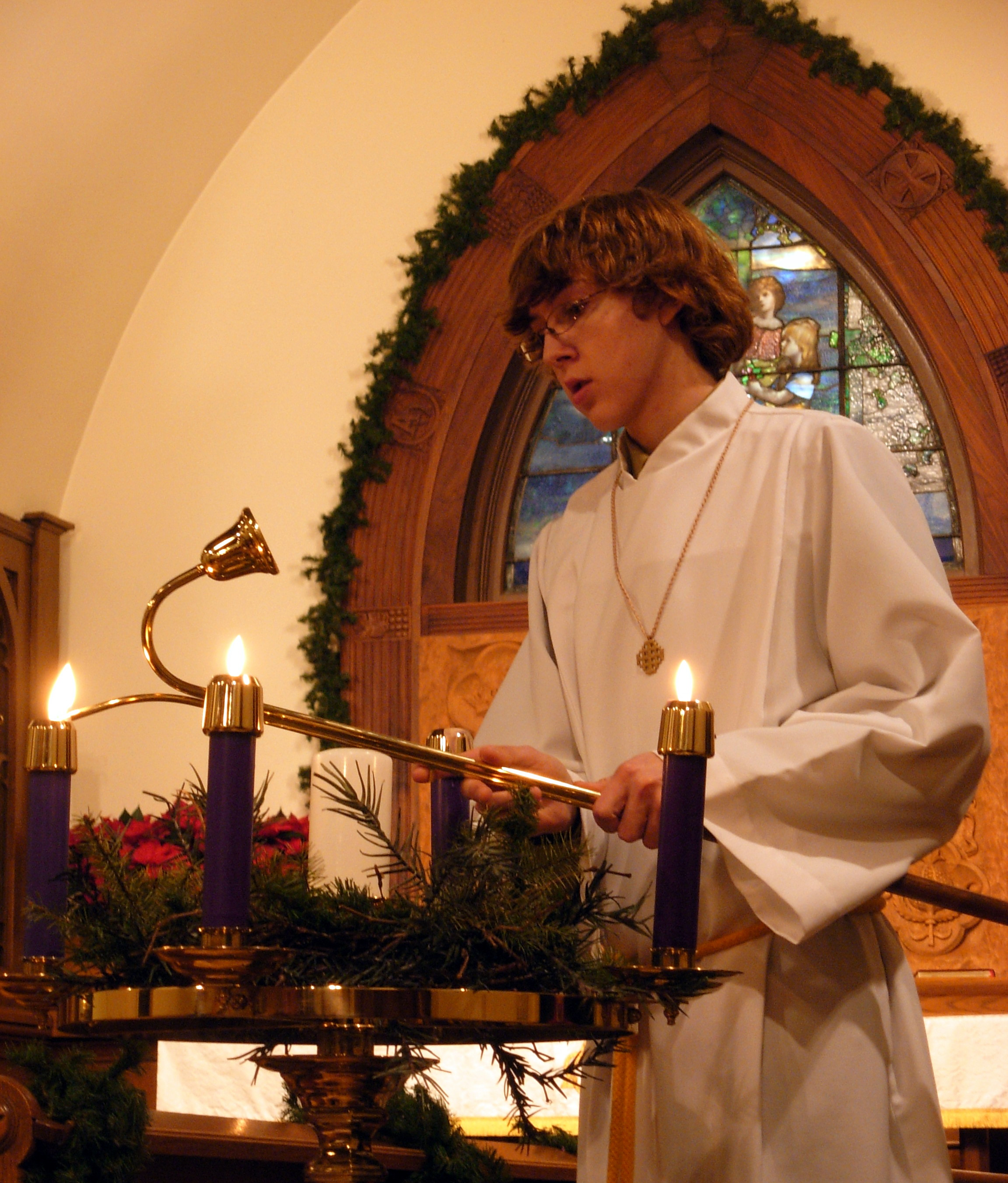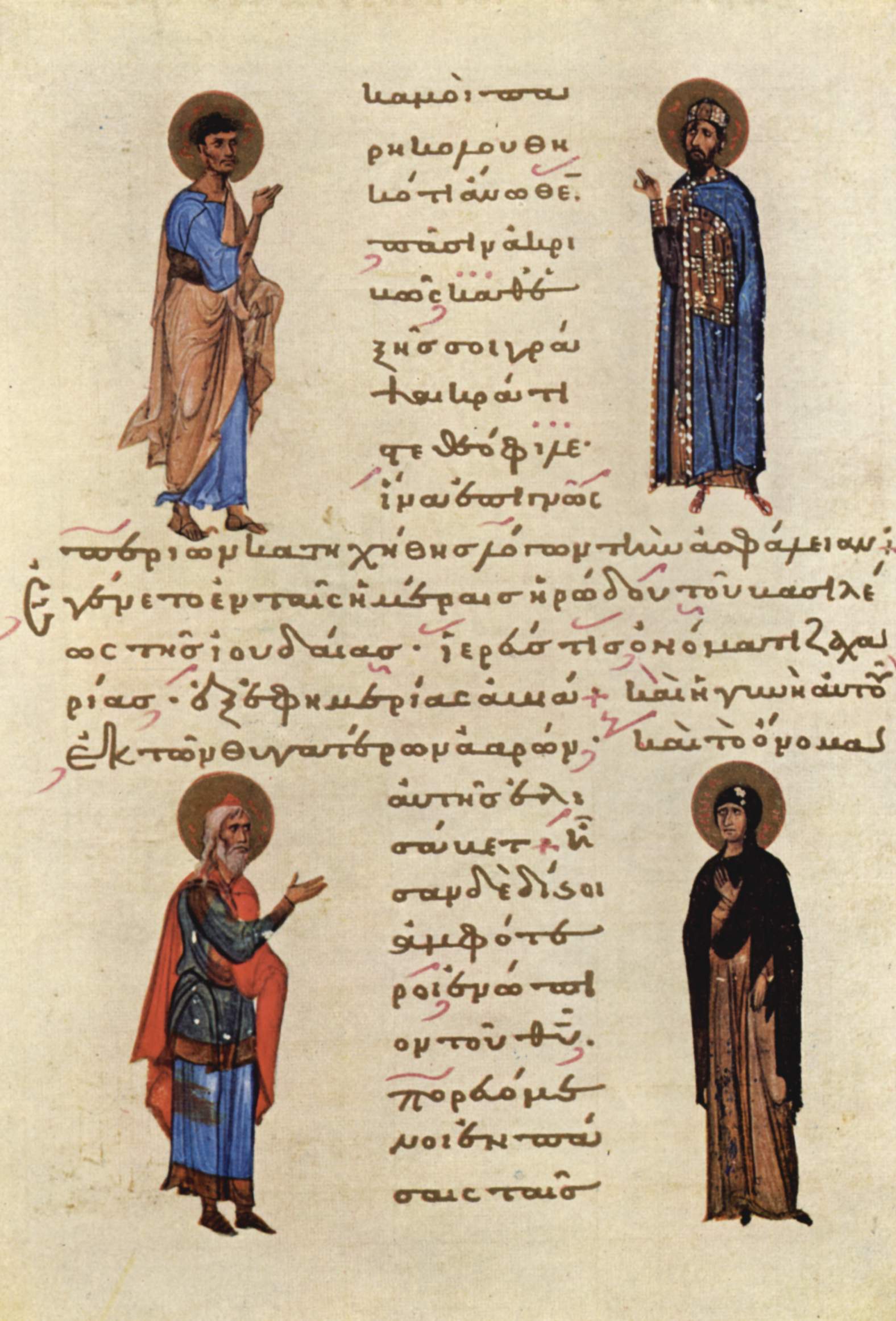Advent Sunday1 (29 Nov 2009)
Jer 33. 14-16; Ps 25; 1Th 3. 12-4.2; Lk 21. 25-28, 34-36
Homily of Fr. Paul Panaretos, S.J.
Advent Assurance For Daily Living
We begin another Advent. We begin “a season of joyful and spiritual expectation.”1 That description of Advent by the church—“a season of joyful and spiritual expectation”—is important for us to recall because over its history the church observed Advent as a miniature Lent, which Advent is not. Because some of us can remember that and most of us are affected by how Advent was observed, the church’s definition of Advent as “a season of joyful and spiritual expectation” helps us appreciate better what we’ve begun. This year I want to reflect with you on Advent’s shape and to what today’s scriptures point.

Advent, which means arrival, celebrates that Jesus, who was born and shared our human nature, died and rose and sits at God’s right hand2 in glory. His human birth was his first advent. Jesus is also present among us by his spirit and will return in glory to give his faithful followers a share in his glory.3 You and I await is his future, second advent.
As always the church engages us where we are: living lives of faith, hope and love. Advent opens the same way, where we are, living with faithful vigilance Jesus’ second advent. Advent renews our sights on Jesus’ future advent to revitalize our faith today and to encourage us to live it. As we near our celebration of the birth of Jesus, Advent recalls the past, Jesus’ birth, which began to transform human history and life. Do today’s scripture readings help our ongoing transformation? I believe they do.
Today’s readings flow with friendship language: promise; covenant; friendship; hearts. They also echo behavior flowing from friendship: kindness and constancy; [God’s] justice, our conduct; humble action; and vigilance. The word promise threads through the bible, usually about God’s promise to people. Jesus fulfilled God’s promise for Jesus was and is access to God’s life, and Jesus gives us a share in it. While we think friendship a human bond, God desires our friendship and established a covenant so God’s friendship would win and free our hearts. Keeping the covenant embraced various human behaviors.
Behavior flowing from friendship makes it a living, pulsing, human truth not some ideal. Friends and friendly people show kindness. They also are faithful, loyal, committed and devoted in deed and word. God’s devotion is God’s justice, which was, is and will be God’s desire that we live in right relationship with God, with others and with all created things.
 The norm for human conduct is humble action: to cultivate an awareness of my Creator and Redeemer so that I will not act as though I am the center of my universe. To act as if one were the center of the universe is not only not humility, it’s idolatry. Idolatry minimizes God or takes God’s place. To minimize God or to take God’s place is the root sin of all sins.
The norm for human conduct is humble action: to cultivate an awareness of my Creator and Redeemer so that I will not act as though I am the center of my universe. To act as if one were the center of the universe is not only not humility, it’s idolatry. Idolatry minimizes God or takes God’s place. To minimize God or to take God’s place is the root sin of all sins.
Each of us knows how we minimize God or do not respect God’s goodness. We need to be vigilant with ourselves. Yet, living our Catholic faith is not just a matter of personal scrutiny. Living our faith acts with the assurance that our Messiah Jesus accompanies us; living our faith joyfully anticipates his glorious return. Welcoming his friendship and extending it to others are how we live sure that our Messiah accompanies us and will return to complete his promises to us. Although clothed in human forms, Jesus’ friendship offers us divine gifts. Jesus graces our human kindness to give others his peace. As agents of his peace we transform the world one person and one moment at a time.
In your daily 15 minutes with Jesus this week, ask to see with the Trinity’s vision, to see others and the world as if for the first time. Ask the disciples to present you to Jesus. Speak with Jesus in your words requesting new freedom from fear and anxiety to live his good news as Jesus created you to live it. Ask Jesus for the grace to be a disciple, who is faithful, loyal, committed and devoted in deed and word. Close, saying slowing the Lord’s Prayer. Jesus gave us the words, thy kingdom come, to heighten our joyful expectation, and the next words, thy will be done, to help us act in sync with his gospel-kingdom day by day.
____________
- General Norms for the Liturgical Year and Calendar, #39.
- Psalm 16 and Hebrews 10.12, part of the Liturgy of the Word of the 33rd Sunday of the Year, recall that. It also testifies to the overlapping of the final Sunday of the Year, Advent and Christmas!
- The Third Eucharistic Prayer for Masses with Children expresses both Jesus glory with his Father and his abiding presence with his church: Jesus lives with you in glory...he is also here on earth among us.
____________________________________________________________________________
 While written from the perspective of the United Kingdom, Father McMillan briefly mentions the U.S. contribution that helped start Faith in the Workplace [FIWP] in London. Father McMillan also offers a concise description of the monthly, 1.5 hr-long meetings plus a testimonial from one person in business for whom FIWP is part of that person's life.
While written from the perspective of the United Kingdom, Father McMillan briefly mentions the U.S. contribution that helped start Faith in the Workplace [FIWP] in London. Father McMillan also offers a concise description of the monthly, 1.5 hr-long meetings plus a testimonial from one person in business for whom FIWP is part of that person's life.
